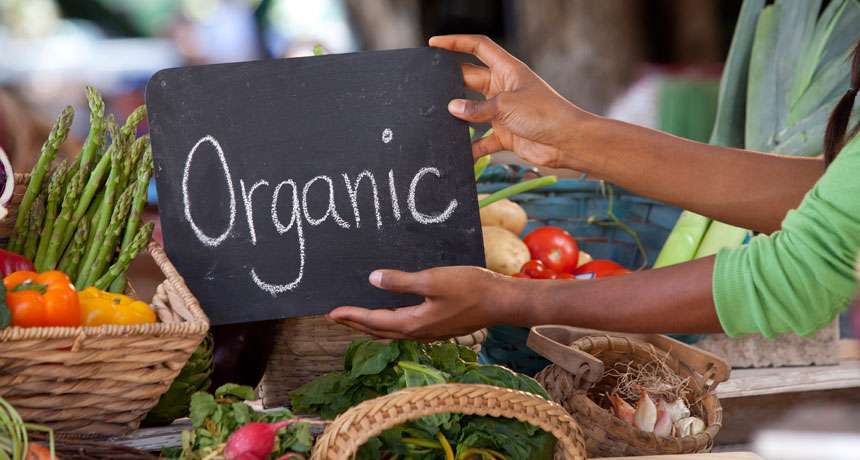Organic food is grown without the application of chemicals like fertilizers and pesticides. This is to prevent them from possessing genetically modified organisms (GMOs). Thus, organic foods do not contain hormones or antibiotics. The foods grow by applying natural fertilizers like compost. Animal rearing is also done in natural environments with no antibiotics and hormones applied. Therefore, food products with the organic label, must not contain artificial food additives like preservatives. Also, coloring, flavoring, and artificial sweeteners are discouraged.
Benefits of organic foods?
The food-growing process impacts the environment and human mental and emotional health. In addition, organic foods contain more beneficial nutrients than other foods. Hence, people with food allergies may prefer organic foods to lessen the reaction symptoms. In organic animal and dairy products like meat, the omega-3 fatty acids and other nutrients are higher than in animals raised using artificial methods. At the same time, growing organic foods is advantageous to the farmers. They do not need to apply expensive fertilizers and pesticides like in genetically engineered foods lowering their production costs. Therefore, if one prefers to consume fresh farm produce, it would be advisable to seek organic foods due to their lack of preservatives.
Organic fruits and vegetables to look out for.

Certain fruits and vegetables have a very high level of pesticides. They include apples, capsicum, cucumbers, strawberries, grapes, spinach, tomatoes, kale, and courgette. These foods are highly infested by pests and diseases so they need regular spraying. However, for the organic produce of these foods, there is control of the pesticide application. Thus, one should look for the organic label in such foods to avoid toxicity levels in the chemicals.
Foods you don’t need to buy organic
These foods have low levels of chemical application. They include avocados, pineapples, papaya, sweet potatoes, onion, cabbage, mango, and sweet corn.
Consequently, experts advise that we consume foods with less chemical exposure as they are unlikely to cause harm to our bodies in the long run.
- What is Martha Karua’s “Iron lady” net worth Edu?
- Dr. Frank McGeorge bio-wife, wdiv, ethnicity, family, net worth.
- Gospel Musician Reuben Kigame presidential bid
- Matt Damon age, education, wife, children, career.
- Al Gore age, family, wife, children, career, books, net worth.
- Julianne Moore age, husband, children, movies, books, net worth.
- Nelson Mandela Bio-family, presidency, Death.
- Public Universities in Kenya
- Kenya Institute of special education, courses.
- Kenya Medical Training College, courses, requirements.
- What is the history of Kenyatta University?
- A list of special secondary schools, and contacts.
- List of best private primary schools in Kirinyaga County.
- List of Accredited Private Universities in Kenya